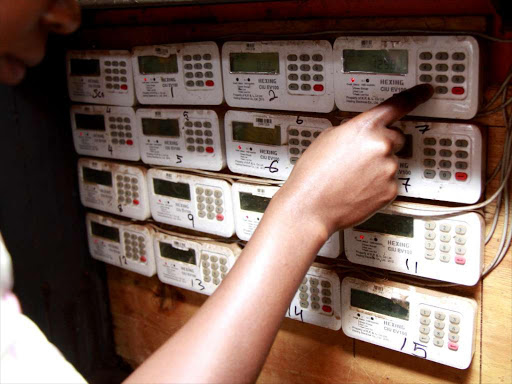IPPs defy pressure, raise wholesale power prices

Despite pressure by the government on Independent Power Producers (IPPs) to reduce wholesale power prices sold to Kenya Power and Lighting Company (KPLC) new data shows they have actually increased rates, exposing Kenyans to more inflationary pressures.
In the period between July 2022 and May 2023, when the government conducted renegotiations on existing Power Purchase Agreements (PPAs), the cost of power per unit by leading IPPs increased by a range of between 19 per cent and 25 per cent.
This is according to documents submitted by the State Department of Energy during a Departmental Committee on Energy forum which is currently investigating the escalating cost of electricity that has hit households and businesses.
While the hikes are majorly linked to fuel cost charges triggered by expensive crude oil in the global market, some IPPs who do not necessarily rely on thermal generation still opted to increase their wholesale prices by wider margins.
The fuel charge is the biggest component in customers’ power bills. Lake Turkana Wind Power Ltd (LTWP), the biggest single IPP with 300MW capacity, has increased the wholesale cost to Sh13.1 per unit of generated power as of May 2023, reflecting a 25.9 per cent rise compared to a cost of Sh10.5 per unit in July 2022. This is excluding forex adjustment that IPPs normally load in the generation cost.
The documents in our possession show that the only private geothermal power generator, OrPower4, also hiked the cost by 19.3 per cent to Sh14.7 per unit during the same period.
Muhoroni GT, the most expensive thermal generator, was selling its power at Sh58.8 per unit in May 2023 while that of Gulf Power rose from Sh23.7 to Sh25.5. Triumph Power sold a unit at Sh28.4, up from Sh26.4.
“The fuel energy charges passed on to post-paid and pre-paid customers in any given month relate to fuel oil used by thermal plants operated by KenGen, IPPs and isolated Rural Electrification Programme (REP) operated by KPLC,” Energy and Petroleum Regulatory Authority (EPRA) Director General Daniel Kiptoo told the Vincent Musyoka-led Energy Committee.
The regulator defended the approved new energy charge that took effect from April 2023, noting that the hike went into covering costs of power generation cost, transmission and distribution, amortisation of transmission, and distribution of assets, which are all necessary to keep KPLC profitable. In 13 months to May 2023, KPLC splashed about Sh4.7 billion to purchase power from 30 IPPs and another Sh7.3 billion on power generated by Kenya Electricity Generating Company (KenGen), the largest player in the country.
Kenya’s power generation mix is mainly dominated by geothermal and hydropower plants but the latter always faces replenishing threats during drought seasons, forcing KPLC to tap costly thermal power to fill the demand gaps.
The new Kenya Kwanza regime has embarked on a fresh investigation of the costly PPA contracts in a bid to ease the burden on consumers. Previous renegotiation attempts under the Jubilee government bore no fruit, forcing the current administration to now turn to unearth the shareholding details of top IPPs contracted by KPLC.
There are allegations that former employees at KPLC, the Ministry of Energy and senior government officials are the shareholders of some of the IPPs. The energy committee has since written to Company Registrar to unveil the shareholders of nine IPPs.
“We need to know who are the specific owners, the possibility of corrupt dealings in which some of the contracts were derived, and conflict of interest,” said Musyoka. IPPs are unwilling to review downwards the costs, arguing that they are still servicing the huge loans tapped during invest












